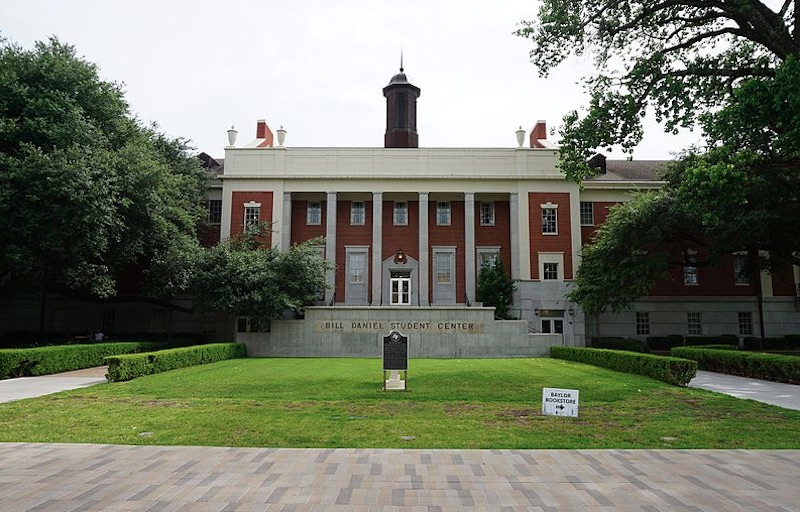Lesbian officer settles discrimination lawsuit against Michigan Department of Corrections
Ashley Menchaca claims she was harassed and discriminated against because of her sexual orientation

A former Michigan corrections officer has settled a sex discrimination lawsuit against the state Department of Corrections, after she claims she was singled out for unfair treatment because of her sexuality.
Ashley Menchaca, a former employee at the Woodland Center Correctional Facility in Whitmore Lake, claims she was subjected to verbal taunts and harassment from her co-workers, was assigned one of the worst jobs in the prison, and subjected to a series of investigations for alleged rules violations that were either unfounded or due to selective enforcement by her superiors.
Menchaca was eventually forced to resign from her job in May 2017. She subsequently filed a lawsuit, alleging that she had been discriminated against on the basis of sexual orientation.
Last November, former Attorney General Bill Schuette (R) submitted a motion asking the court to dismiss the part of the lawsuit alleging discrimination based on sexual orientation, because Michigan’s civil rights law does not have any explicit nondiscrimination protections for gays, lesbians, or bisexuals, reports the Detroit Free Press.
But in March, newly elected Attorney General Dana Nessel (D) ordered the motion to be withdrawn before a judge could rule on it. Citing an executive order from Gov. Gretchen Whitmer (D) that embraces the Michigan Civil Rights Commission’s interpretation that the provision in the state’s Elliott-Larsen Civil Rights Act that bans sex-based discrimination also protects people from discrimination based on their sexual orientation or gender identity.
As a result, the case was allowed to proceed, with the Department of Corrections eventually deciding to settle with Menchaca, agreeing to pay her $135,000.
Kelly Rossman-McKinney, a spokesperson for Nessel’s office, noted that discrimination based on sexual orientation was not the only allegation Menchaca had made in her lawsuit, so removing the legal challenge to that count alone did not necessarily mean she’d prevail in her case.
In fact, Rossman-McKinney noted, the attorney general’s office continued to fight the law, contesting some of the facts contained in Menchaca’s complaint and arguing that she could not show she’d been “constructively discharged.”
Shee added that the office had taken into account the cost of litigating the matter when deciding to settle, but also maintained that the state does not condone the type of behavior alleged by Menchaca.
“Both this department and the MDOC denounce discrimination,” Rossman-McKinney said.
Andrew Laurila, Menchaca’s attorney said the relatively small amount of the settlement was due to the difficulty in proving “constructive dismissal” when an employee resigns because of discrimination, harassment, or retaliation, rather than being fired.
Menchaca claims that a captain who made disparaging remarks about LGBTQ people ordered that the cushioned chair that Menchaca and other officers used while working the gate be replaced with a hard stool, but only when Menchaca was on duty. Additionally, the fact that Menchaca was assigned to the gate, which she claimed in her lawsuit is considered a punishment in the corrections system, was problematic.
Menchaca later reported the bullying, even filing a formal complaint about the captain in April 2017, just a month before she quit. But the harassment and mistreatment escalated, and Menchaca found herself being written up or investigated over unfounded claims that she violated various rules. She claims the investigations were a form of retaliation for complaining.
Read more:
Buttigieg and Warren say they’re not interested in revoking churches’ tax-exempt status
Trans man’s jaw broken after brutal attack in Philadelphia 7-Eleven
Man faces prison after assaulting nine-year-old and calling him “gayboy”
Support Metro Weekly’s Journalism
These are challenging times for news organizations. And yet it’s crucial we stay active and provide vital resources and information to both our local readers and the world. So won’t you please take a moment and consider supporting Metro Weekly with a membership? For as little as $5 a month, you can help ensure Metro Weekly magazine and MetroWeekly.com remain free, viable resources as we provide the best, most diverse, culturally-resonant LGBTQ coverage in both the D.C. region and around the world. Memberships come with exclusive perks and discounts, your own personal digital delivery of each week’s magazine (and an archive), access to our Member's Lounge when it launches this fall, and exclusive members-only items like Metro Weekly Membership Mugs and Tote Bags! Check out all our membership levels here and please join us today!


























You must be logged in to post a comment.